
Girl Nation 2021-2022 is the third installment of the Girl Nation Program which had remarkable activities, including the memorable launch of the Women’s International Film Festival Nigeria (WIFFEN) – the premier women’s international film festival in Nigeria and West Africa. The Girl Nation Program and the WIFFEN was implemented with support from the French Embassy’s PISCCA Fund and additional support from the Embassy of the Democratic Republic of Congo, the Central Bank of Nigeria, Zenith Bank Plc, Hall 7 Real Estate, Vento Furniture Ltd., Aero Contractors, Telecom Satellite Television Africa, Aputure Lighting, Film Freeway, and several partners in Nigeria and abroad.
The successful launch of the WIFFEN call for film submissions on the Film Freeway platform allowed us to leverage the population of professional filmmakers and we received a total of 3,067 films submitted from 132+ countries with top entries received from Iran, United States of America, India, Spain, Brazil, France, Italy, Russia, United Kingdom, Germany, Turkey, Argentina, Egypt, Poland, Nigeria, Mexico, Canada, China, Ukraine, and several other countries around the world. The Jury of the WIFFEN sought a global representation and comprised professional filmmakers from France, South Africa, Canada, and Nigeria.
Picture of any of the Day 1 sessions
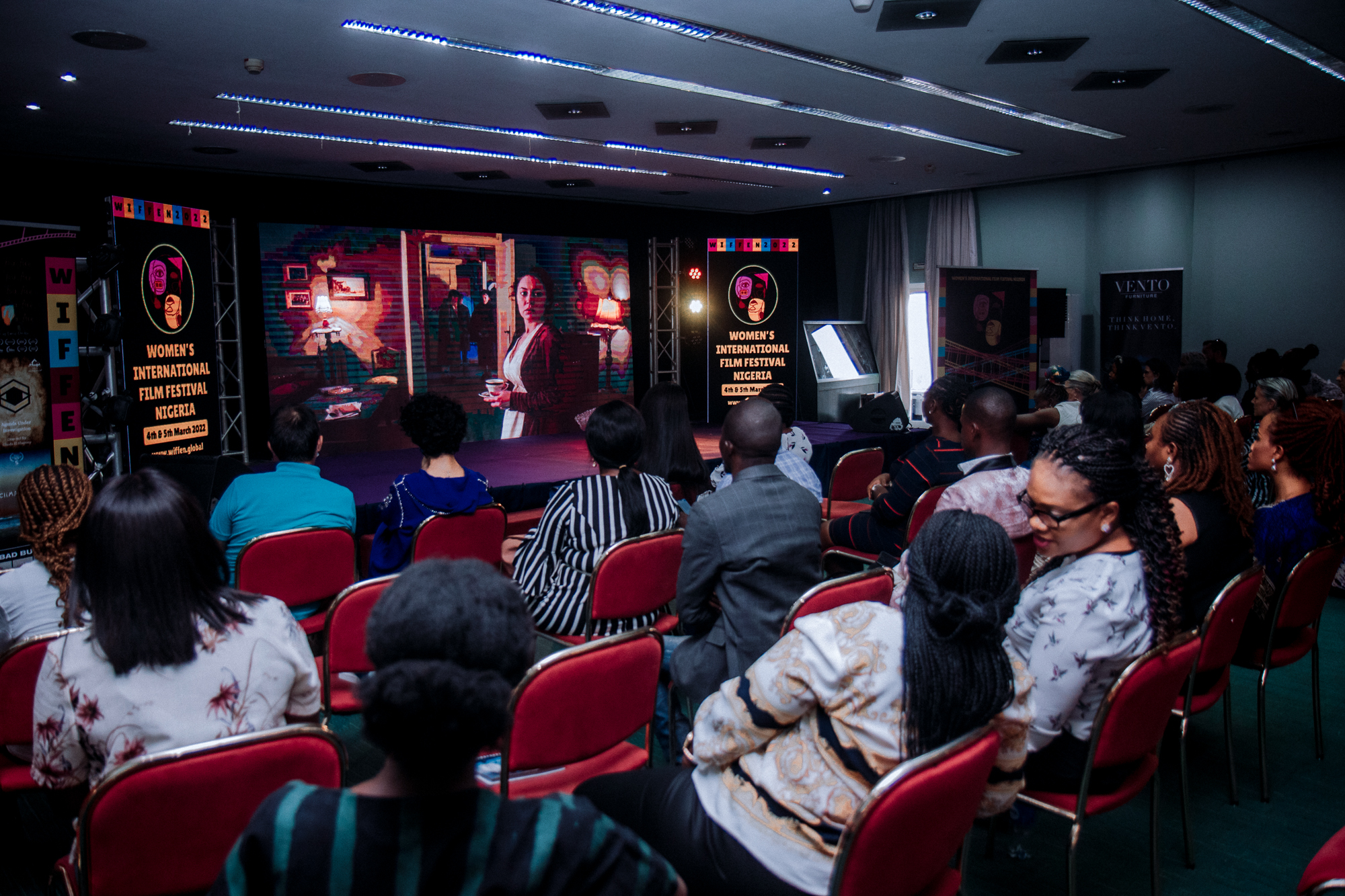
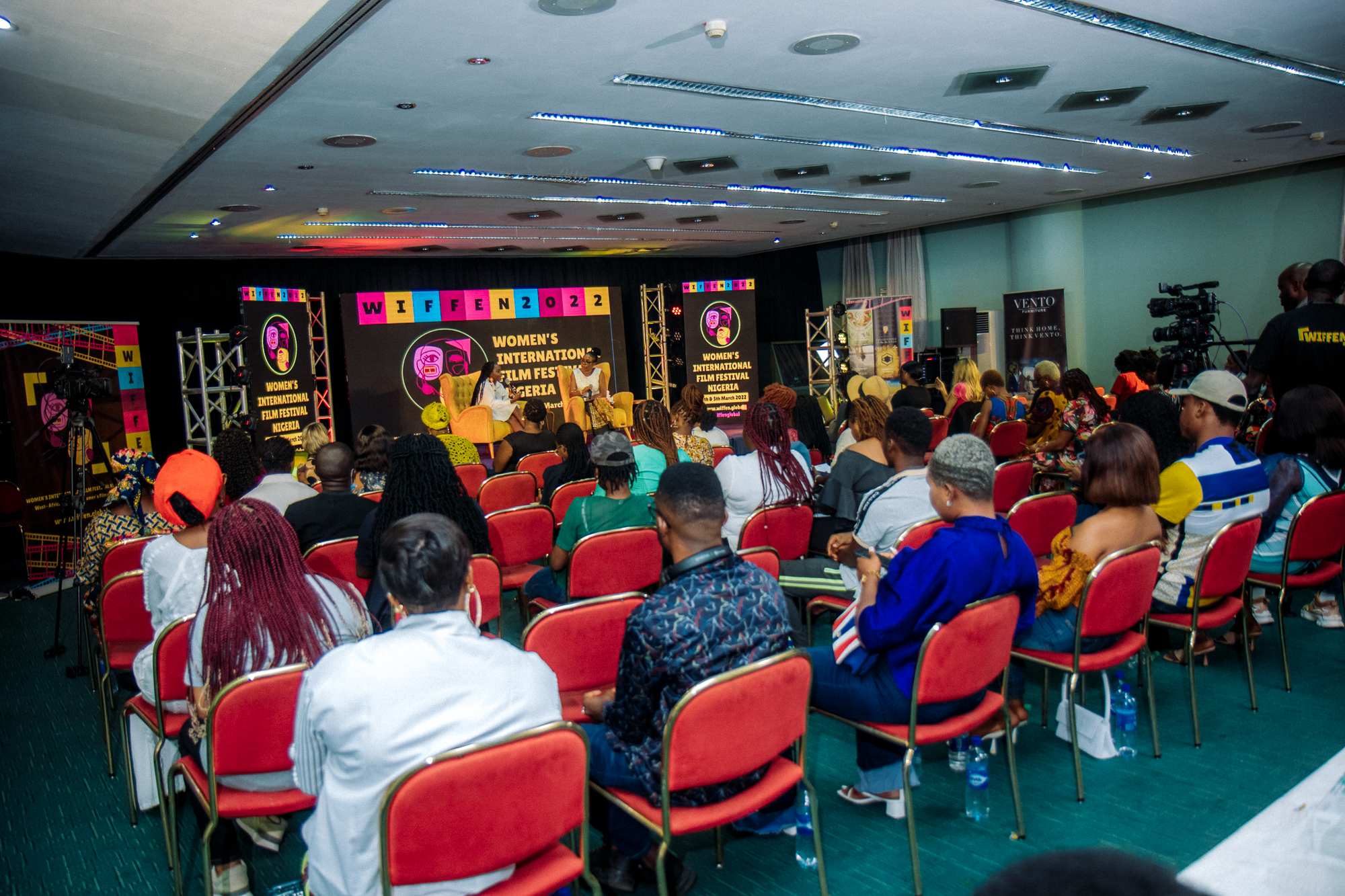
The film festival successfully held on the 4th and 5th March at the Niger and Benue Halls and the Executive Hall of the Abuja International Conference Centre with very rich participation from Abuja, around the country and around the world thanks to the livestream that opened access to people to have a virtual experience of the festival. The attendance on the 4th of March recorded a very rich presence of women and filmmakers which was the true essence of the gathering. The Festival’s content was carefully curated to empower female filmmakers with basic information about funding for female filmmakers and how they can access it, distribution opportunities for female filmmakers and what needs to change to better position female filmmakers for good distribution deals, Storytelling workshop, Social Impact filmmaking to champion girls’ and women’s rights advocacy, Masterclass on Crafting the Plot: scriptwriting for better storytelling, Wikipedia and promoting women’s visibility online. These were in addition to film screenings holding in between the sessions for variety of learning and engagement. The attendance revealed 73% attendance from women which implied that women understood that the festival was specially curated for them, and they were present to benefit from the specialized sessions designed for female filmmakers. Also, majority of the attendance comprised filmmakers; 105 of the 230 physical attendees at the sessions were filmmakers which meant that the target group that the festival was curated for were indeed the participants who benefitted from the tailored sessions at the festival. An active age group of 26 – 34 years were the largest age group at the festival comprising 31%, then 18-25 years and 35-45 years each comprised 26.5%. This meant that the festival reached a vibrant and active age group at the festival. Also, virtual engagement was in their thousands through the sessions and our social media engagement surpassed a million in the week of the festival and continues to grow even after the festival.
Picture of Ukraine award celebration by the Ambassadors
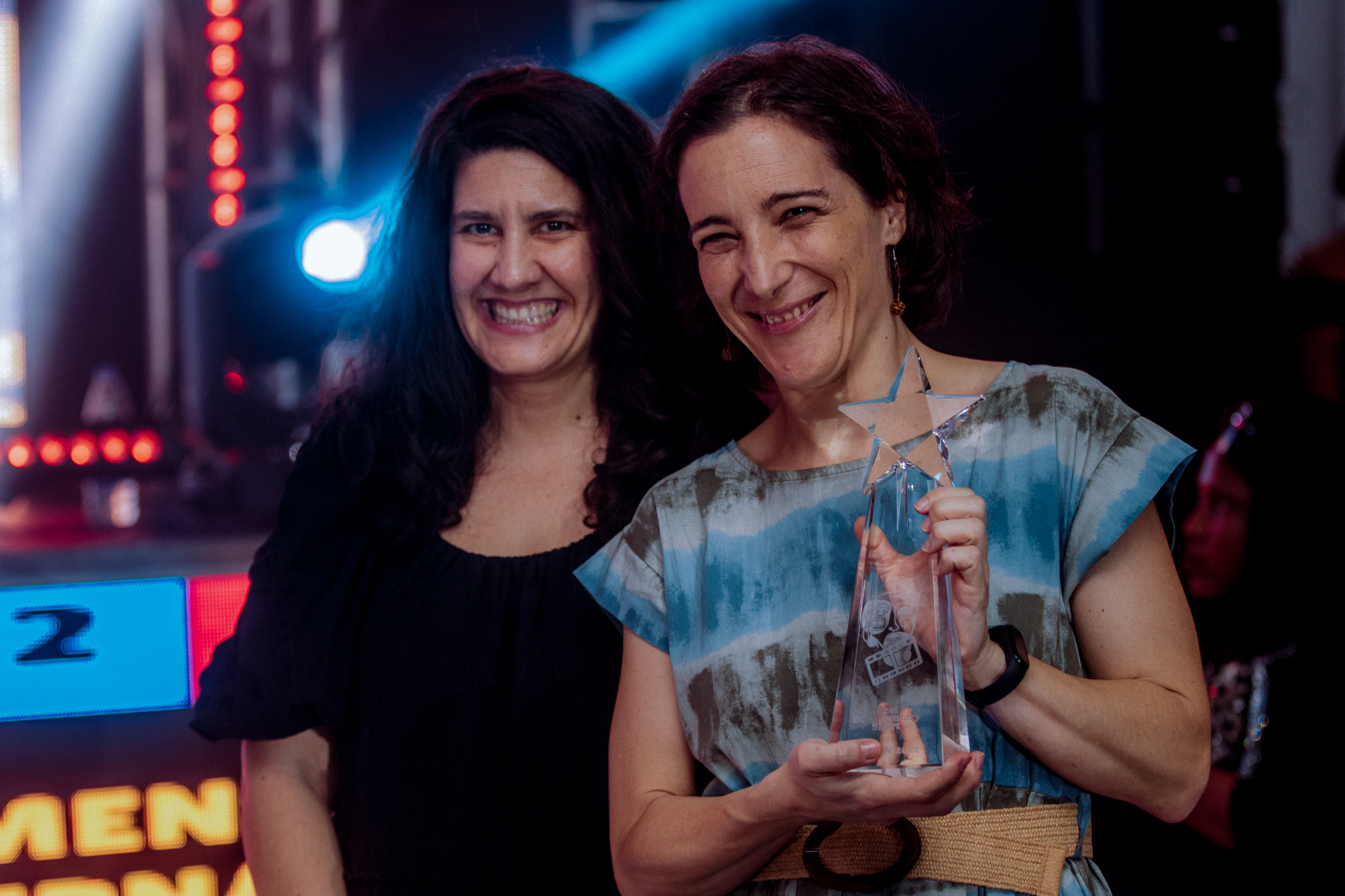
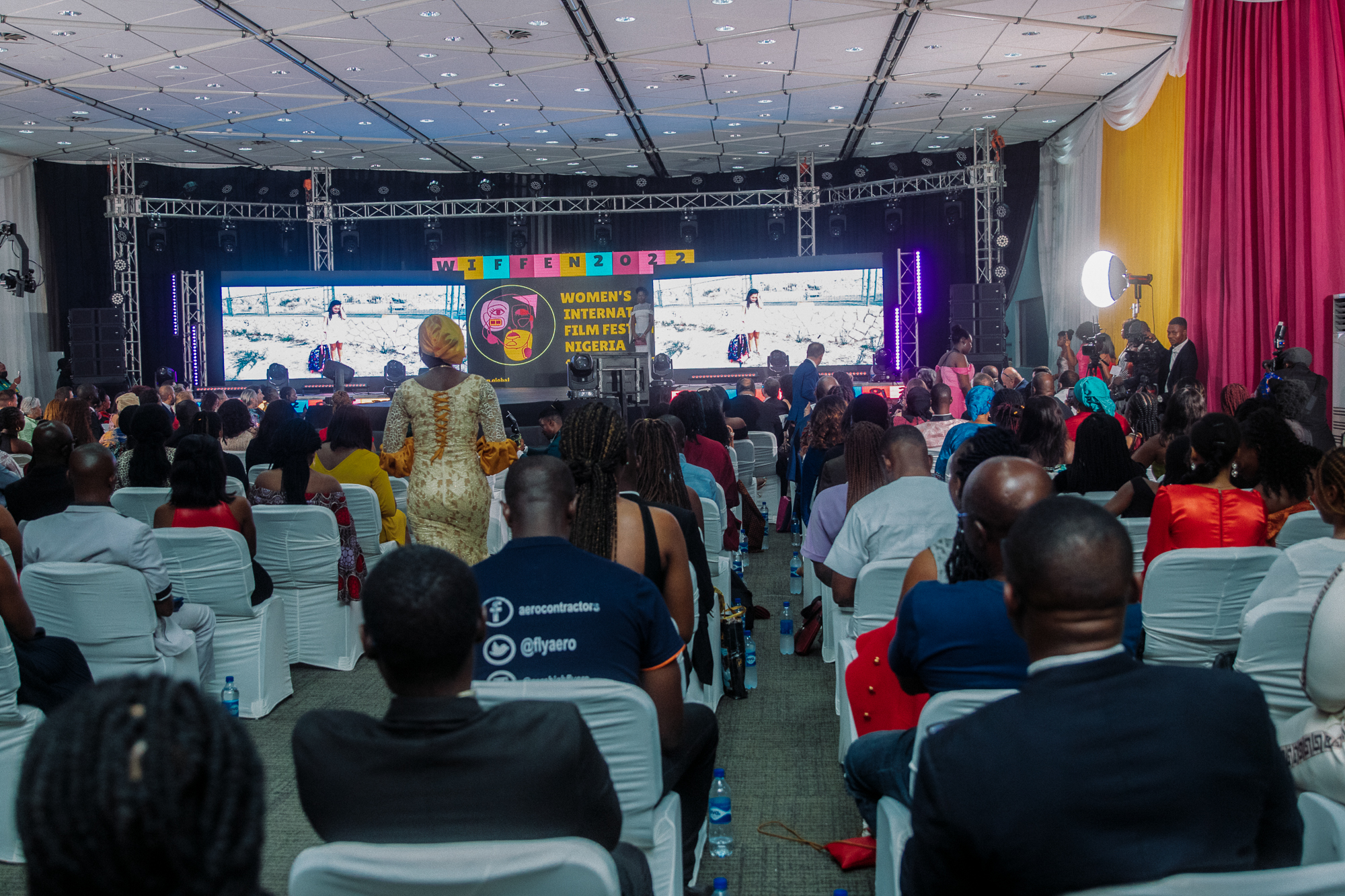
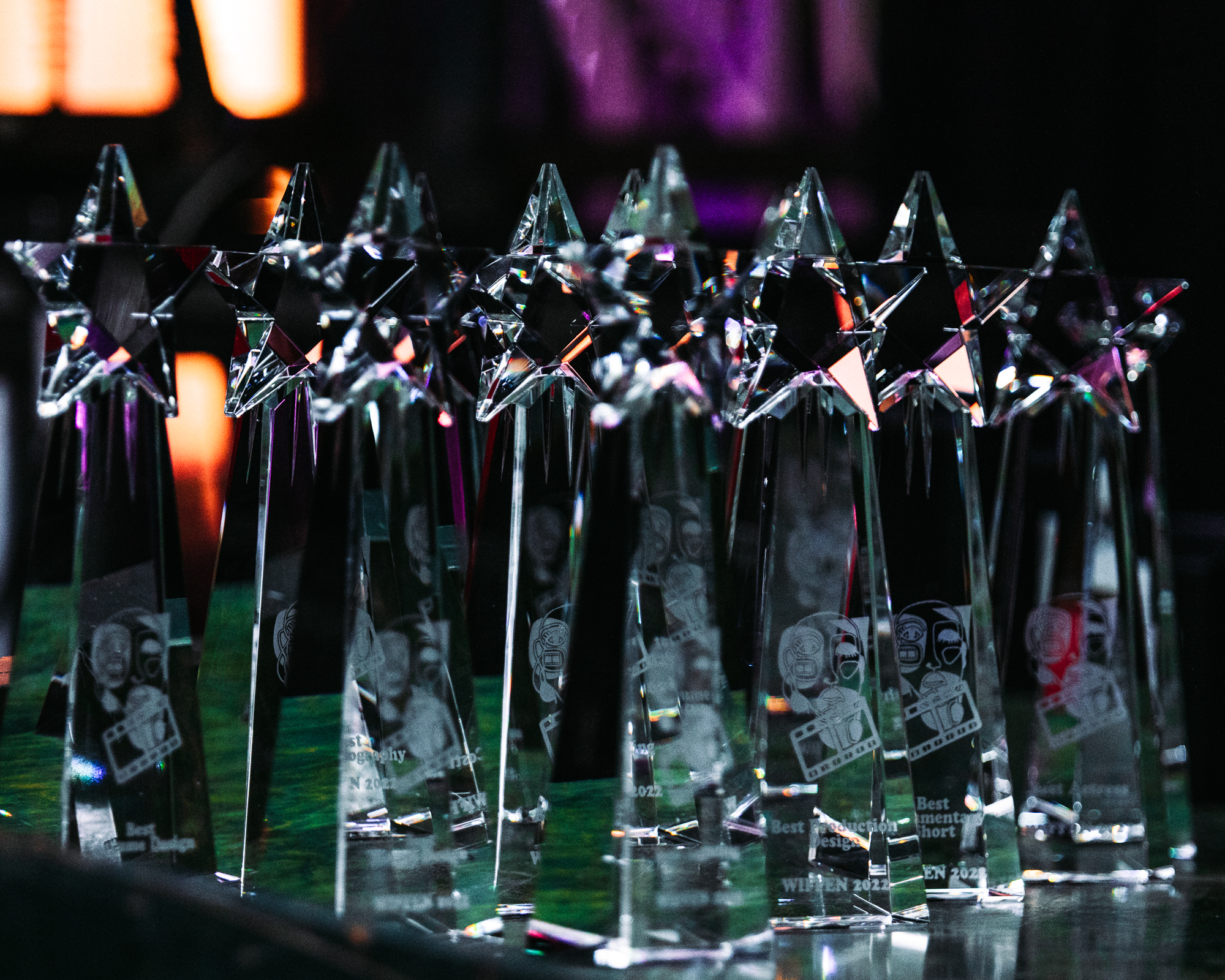
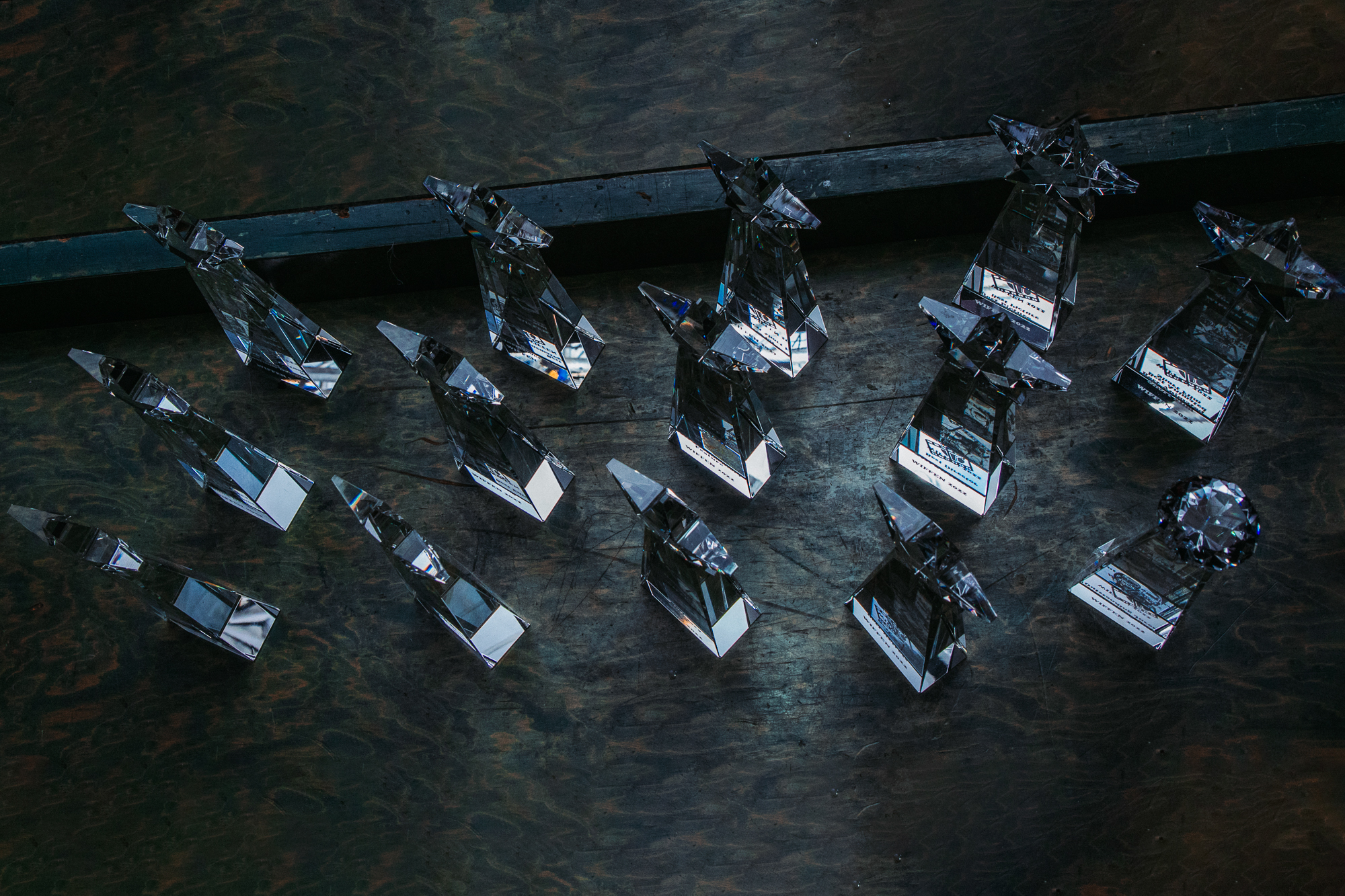
The highlight of the festival was the WIFFEN Awards Ceremony which had about 500 persons present including an impressive 120+ diplomatic officials present throughout the event. The WIFFEN Awards were presented in 16 categories plus 2 additional awards to the Outstanding Juror and Inspiring Filmmaker. The 16 WIFFEN Award categories included the Best Child Actress, Best Student Film, Best Original Score, Best Lighting, Best Sound Design, Best Costume Design, Best Production Design, Best Editing, Best Cinematographer, Best Documentary Short Film, Best Documentary Feature, Best Short Film, Best Actress, Best Director, and Best Picture. The biggest award of the night, Best Picture, went to Ukraine which was very timely and was celebrated in grand style at the awards event. The award for Best Lighting won an additional award with lighting equipment worth $3000 donated to the winning film crew by the Aputure Lighting Company in the USA. Also, the award for Best Student Film won an additional award of $1000 to the winning film crew by the French Embassy’s PISCCA Program which was very symbolic of its support to the youth. All the winners were presented with WIFFEN Award trophies received on their behalf by their Embassies.
Female filmmakers in Nigeria and around the world have been challenged by this Festival and are inspired to improve their films to better compete on the global stage. And some of the films that were not selected in the maiden festival shared feedback that they will improve their films and compete again. The festival successfully met one of its goals - to constantly challenge female filmmakers to raise the bar on film quality. And to achieve this, WIFFEN continues to strengthen the skills of female filmmakers and boost their access to information and distribution opportunities around the world.
In addition to the Film Festival event, other Girl Nation Program activities held, including the virtual sessions to target our Female Filmmakers Forum with increased education and inspiration from female filmmakers around the world.
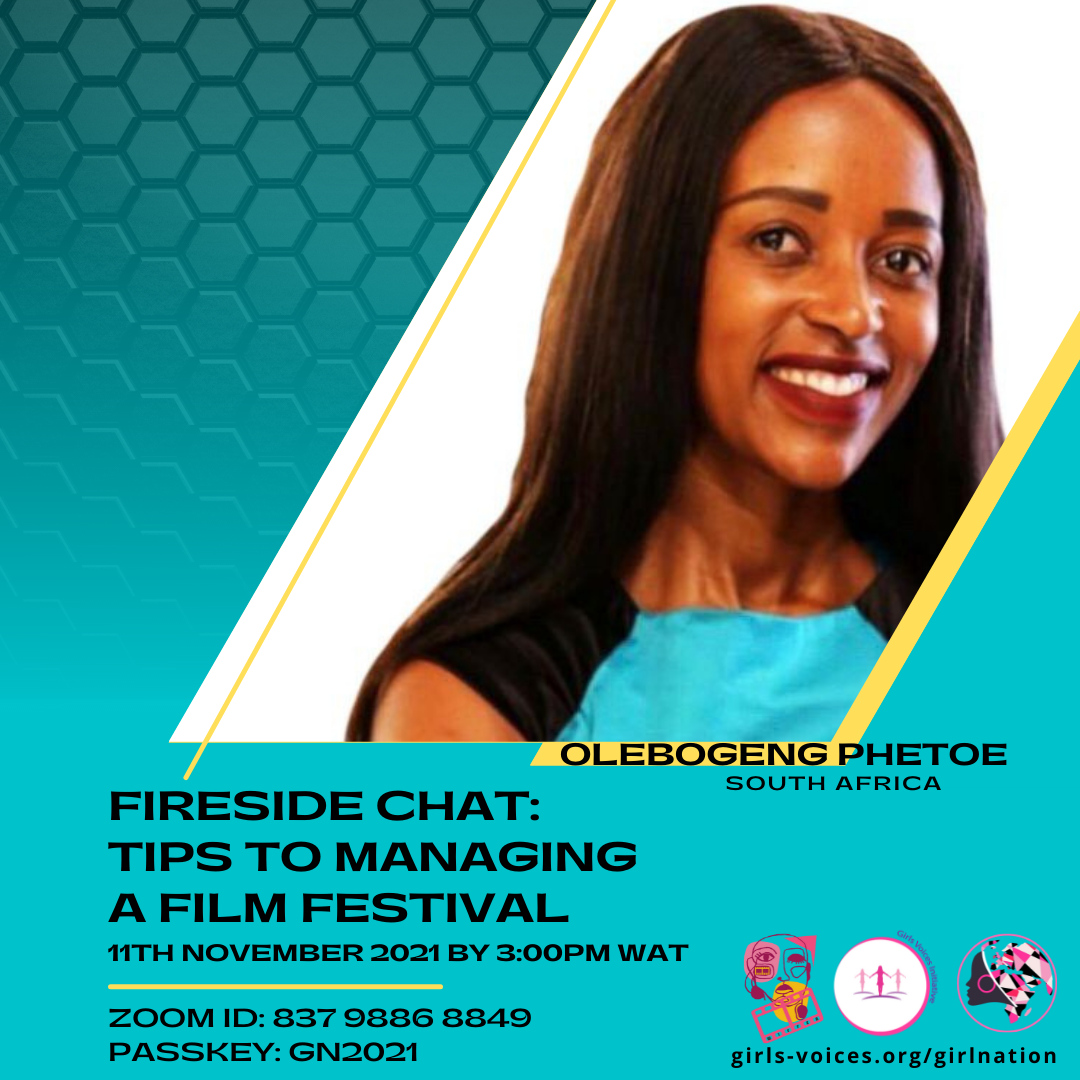
Olebogeng Phetoe from Gauteng, South Africa, is a young female filmmaker who runs her film production company and managed the Rustenburg Film Festival in March 2021. Speaking to the topic, ‘Managing a Film Festival’, she shared her experience managing the festival, including working in a team, delegating, and accomplishing tasks. She shared several helpful tools, including the festival schedule, the project plan, and she shared her tips on time and task management, leveraging networking opportunities at film festivals. She offered her support to the beneficiaries involved in supporting the implementation of the upcoming Women’s International Film Festival Nigeria (WIFFEN). A great exchange happened between both countries and continues to grow.
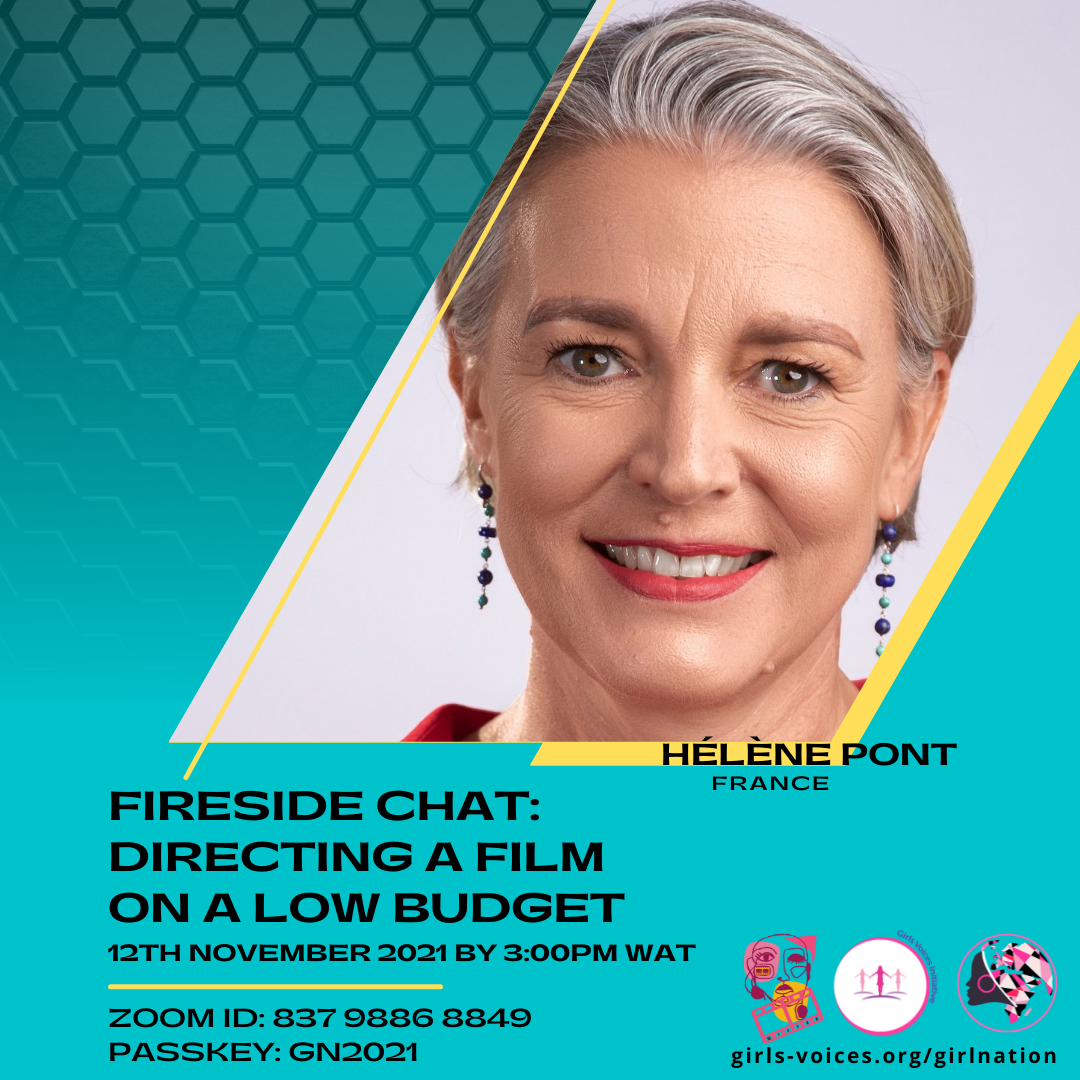
Helene Pont from France (and currently living in Nigeria), is a documentary film director whose recent documentary directing debut in Nigeria presented a wonderful learning experience for our beneficiaries to leverage her learning from her stories of achievement, and to be bold to launch their individual and team production projects. Speaking to the topic, ‘Directing a Film on a Low Budget’ she shared her personal experience directing a documentary film in a foreign country with a male production crew and the language and other contextual barriers that she had to overcome to successfully achieve a documentary production. Helene represented the scenario where women need to succeed in the industry amidst all the barriers limiting them in the industry. She had all the odds stacked against her with all these challenges and the global COVID-19 pandemic which compounded an already challenging production experience. She shared her approaches to successfully completing her project; overcoming the language barriers, managing her male crew, other field production challenges, and editing remotely because of the pandemic. The girls were inspired and asked several questions to further get some guidance on how to navigate similar challenges for young women filmmakers in a country like Nigeria.
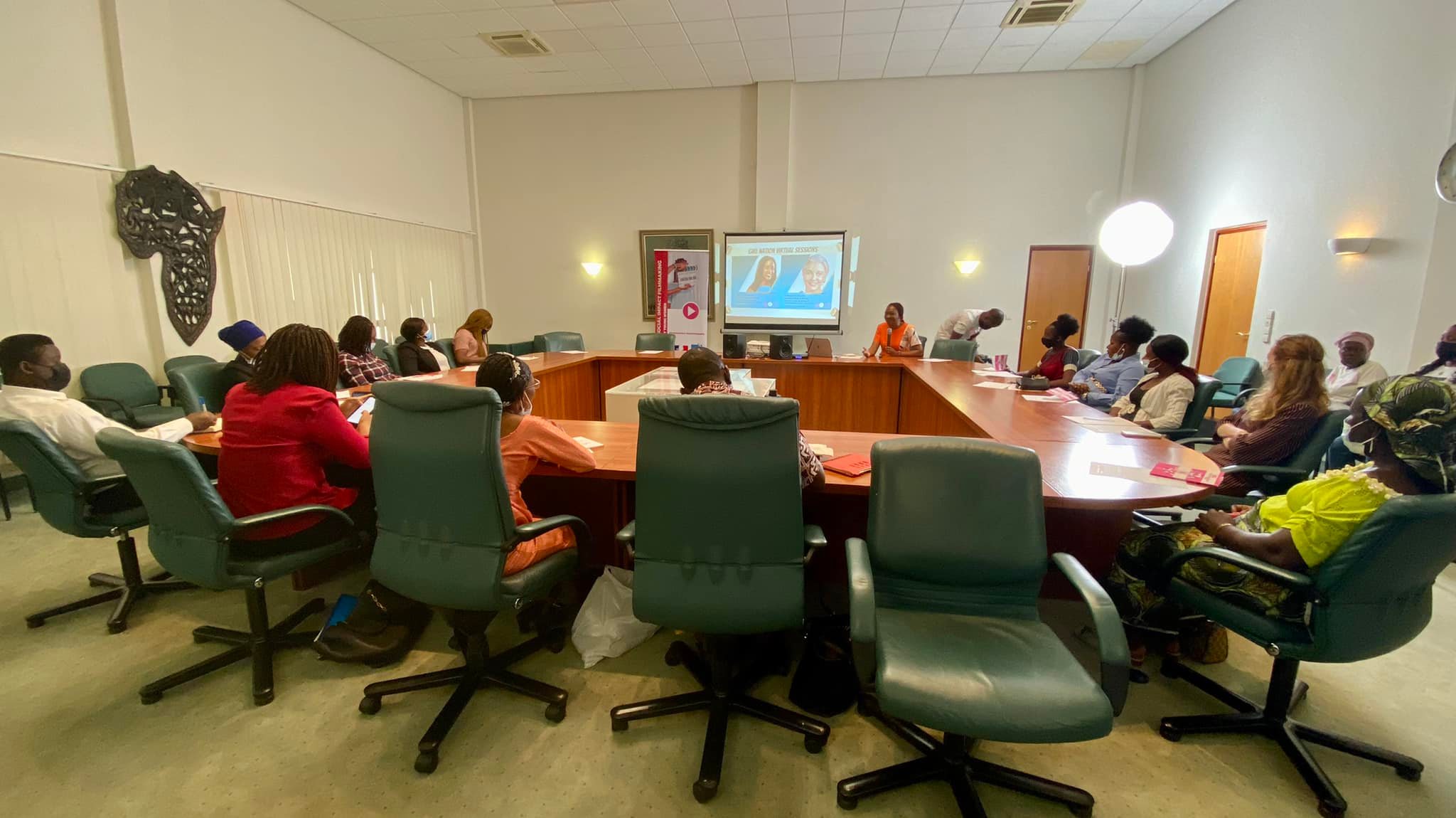
The final activities were the Stakeholder Engagements; In the first Engagement, a variety of stakeholders were mobilized from Civil Society, Government, Private Sector, and the Media. The stakeholder composition was critical in the convening to ensure a fruitful and productive cooperation between actors for significant impact for beneficiaries. The engagement event enlightened the stakeholders about the Girl Nation Program, its impact to date, and future impact anticipated (especially the role(s) that partners could play to strengthen the anticipated impact. The engagement shared about the investment of the French Embassy in the Program and the value that this has provided our organization, our beneficiaries who have and continue to build their filmmaking skills as a result, and the local and global reach of the Program with the Women’s International Film Festival Nigeria (WIFFEN) that was yet to hold at the time of the Engagement. Stakeholders were inspired by the screening of the short documentary film, ‘A Girl Against the World’, and conversations following the film screening was active to reflect participants thoughts and reactions. The Engagement meeting also shared information about the potential cooperation of stakeholders to strengthen girls’ and women’s access to necessary services in the event of a gender-based violence occurrence including reporting to the police, accessing medical checkup and healthcare, accessing probono legal services, accessing counselling and psychosocial support through the healing journey. The highlight of the conversations was the shared experiences from some of the partners providing that service including the FCT Sexual and Gender-Based Violence Team who equally serve as a Sexual Assault Referral Centre in the FCT and shared some of the services they offer to victims and the challenges they encounter. The civil society representatives also shared their services and challenges and the media representatives spoke about their vital role as journalists. At the end, participants agreed that stronger collaboration would further catalyze the impact to reach more girls and women who really need the intervention.
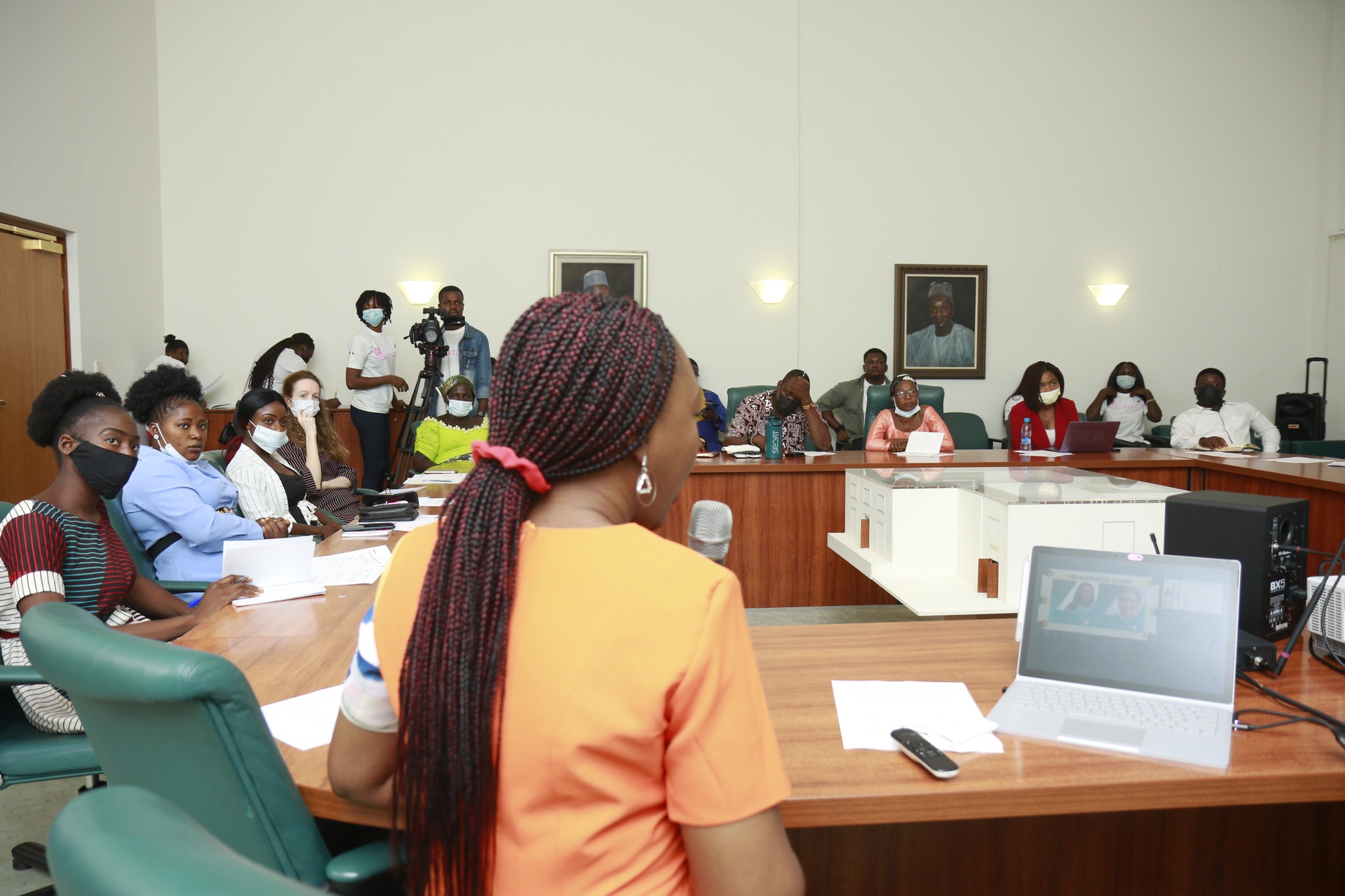
The second Engagement targeted local community people and sought to connect the Giri community people to GBV responders and support services. The Engagement opened with the film screening of ‘A Girl Against the World’. The event equally screened 2 additional Girl Nation short films, ‘It’s a Girl’ and ‘Uwani’ which previously screened with the men and boys in the community while the other film was strictly screened to girls and women in the community. The screening with the men and boys allowed us to echo the charge at the end, which was led by the viewers who spoke about their learning and challenged themselves to action to protect girls’ rights to education, career, and other ambitions. However, the screening with the girls and women allowed us to have deeper conversations with them and they asked us questions like, ‘What is a girl to do when she suffers abuse in the home from a father, uncle, or other relation?’ ‘Who does a girl turn to when her mother refuses to receive or believe her report of sexual abuse?’ While the questions gave an indication of personal experiences of the girls and women in the room, the focus of our intervention was to educate them about GBV and information about the immediate services that victims should access in the face of a GBV occurrence, so the community can be better connected to the GBV responders and the support services that they provide. The highlight of the convening was the establishment of the Girls Action Group (GAG) who comprise little girls, adolescent girls, young and older women to provide a good disaggregation of the age groups and ensure that they effectively impact the complementary ages of girls and women in their communities. The Girl Action Group (GAG) comprise 19 girls and women who have become the first GBV responders in the community because they have all the contact information to reach our organization as well as the hotlines of the Police, the FCT SGBV Team (SARC), and the Federation of Women Lawyers for probono legal services. The GAG was further engaged at the Stakeholders Engagement meeting and will be further engaged with training to better equip them to lead additional technical services within the community, including data gathering and supporting advocacy to ensure victims get access to the services due them in the face of GBV. The GAG comprises 4 very young girls aged 9-11 years, 11 adolescent girls aged 15-22 years, and 4 women aged 24-55 years old. Together, they provide first response support to their peers in the community, and they continue to receive support from our project team. The local screening event was attended by the Giri Community Leader popularly called ‘Abu Giri’ and the event aligned with the start of the 16 Days of Activism on Eliminating Violence against Girls and Women. The screening mobilized a good community population with 124 men, women, boys, and girls convened for the screening and advocacy outreach.
